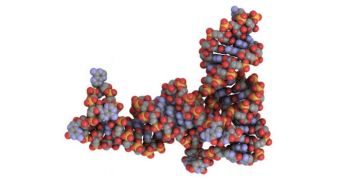Researchers at the Massachusetts Institute of Technology (MIT), in Cambridge, announce the development of a new type of RNA-delivering nanoparticles, which can be used to search for new targets, to be used by future generations of cancer drugs.
Cancer cell genome sequencing studies have thus far revealed numerous genes that appear to be deleted, copied, or otherwise mutated. All of them constitute potential drug targets, but establishing which of them are actually useful is a very time-consuming endeavor.
Using the new nanoparticles on mice will from now enable scientists to browse through the potential target database very fast, and determine which gene is really worth targeting in future research efforts.
“What we did was try to set forth a pipeline where you start with all of the targets that are pouring out of genomics, and you sequentially filter them through a mouse model to figure out which ones are important,” the MIT team explains.

 14 DAY TRIAL //
14 DAY TRIAL //